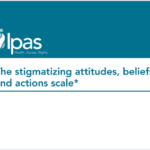Research has not kept abreast of women’s self-use of medical abortion, leaving many gaps in the scientific literature regarding the ideal conditions for safe and effective use. In December 2016, a group of 20 global abortion researchers convened following the Africa Regional Conference on Abortion to discuss current and future research on medical abortion self-use. This article lays out their list of identified research gaps and methodologic considerations in addressing them—challenges that are intended to inform both ongoing and future research.
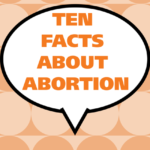
This manual serves as a quick reference guide for pro-choice advocates. The guide offers factual evidence debunking ten widely disseminated abortion myths, and provides supporting background information and resources. We hope this guide will help reproductive rights activists to confidently respond to challenges to our work and to continue advocating for abortion based on clear, scientific and unbiased data.
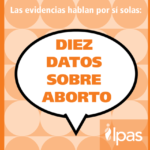
Este manual sirve como guía de referencia rápida para promotores del derecho a decidir. La guía ofrece evidencia factual, que desacredita diez mitos sobre el aborto ampliamente difundidos, y proporciona antecedentes y recursos suplementarios. Esperamos que esta guía ayude a activistas defensores de los derechos reproductivos a responder con confianza a los retos en nuestro trabajo y a continuar abogando por el derecho al aborto basándose en datos científicos claros e imparciales.
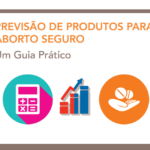
Este guia foi desenvolvido para ajudar os gestores de programas e provedores de serviços de aborto seguro a estimar os medicamentos e artigos médicos mais críticos necessários para a prestação desses serviços.
President Donald Trump reinstated the global gag rule in the first days of his presidency and expanded the restriction to all recipients of U.S. global health funds. Under the global gag rule, recipients of U.S. funds cannot provide abortion services, information, or referrals and are not allowed to advocate for abortion law reform. The impact of Trump’s uniquely restrictive global gag rule on women’s health and rights will be greater than the gag rule in the past.
Even as governments around the world are liberalizing their abortion laws, the vast majority of countries still legally require one or more healthcare providers to approve or perform abortion. Such requirements criminalize women who lack access to healthcare providers and seek abortion without one. Such women are often the world’s poorest and most marginalized women.
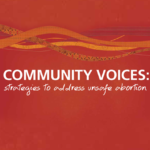
This booklet describes Ipas’s community work with vivid stories and narrative from Ipas staff and partners in the field—from Ethiopia to Mexico.
Ending the silent pandemic of unsafe abortion is an urgent public-health and human-rights imperative. As with other more visible global-health issues, this scourge threatens women throughout the developing world. Every year, about 19–20 million abortions are done by individuals without the requisite skills, or in environments below minimum medical standards, or both.
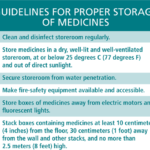
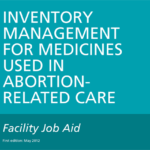
This 12-page job aid supports efficient inventory management of misoprostol (and mifepristone, depending on the setting) and other maternal-health medicines. It defines sound inventory management practices that can help reduce stock-outs and oversupply situations, and is for use by staff in public health facilities, nongovernmental organizations (civil society organizations) and private for-profit clinics and hospitals.
Ipas works around the world every day to strengthen girls’ voices and their ability to choose the path that’s right for them.
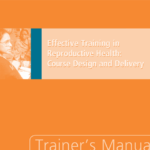
This trainer’s manual is intended for use in training-of-trainers courses, along with its companion document, Effective training in reproductive health: Course design and delivery – Reference manual. The trainer’s manual comes with a CD-ROM that includes PowerPoint® presentations and additional exercises for the trainer.
This guide focuses on ways to plan, implement, use and finalize an assessment of how young women and their communities relate to abortion, through locally relevant, community and/or youth-led processes. It is designed to gain insights into the local context surrounding abortion care for young women to inform program design and to support meaningful youth participation in project design. It is a global resource for community groups, youth groups, peer educators, trainers, administrators, program managers and technical advisors of abortion care programs.
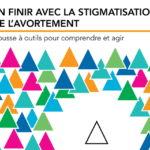
La stigmatisation de l’avortement joue un rôle central dans la marginalisation sociale, médicale et juridique des soins d’avortement à travers le monde et a des conséquences négatives sur la santé des femmes, des jeunes filles, des personnes trans et de leurs communautés. La stigmatisation de l’avortement est à l’origine du nombre élevé de décès et séquelles évitables dus à l’avortement non sécurisé à travers le monde.
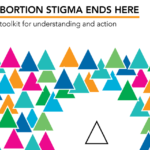
Abortion stigma plays a critical role in the social, medical and legal marginalization of abortion care around the world—and it leads to negative health outcomes for women, girls, trans people and our communities. It drives the high number of preventable deaths and injuries around the world due to unsafe abortion.
